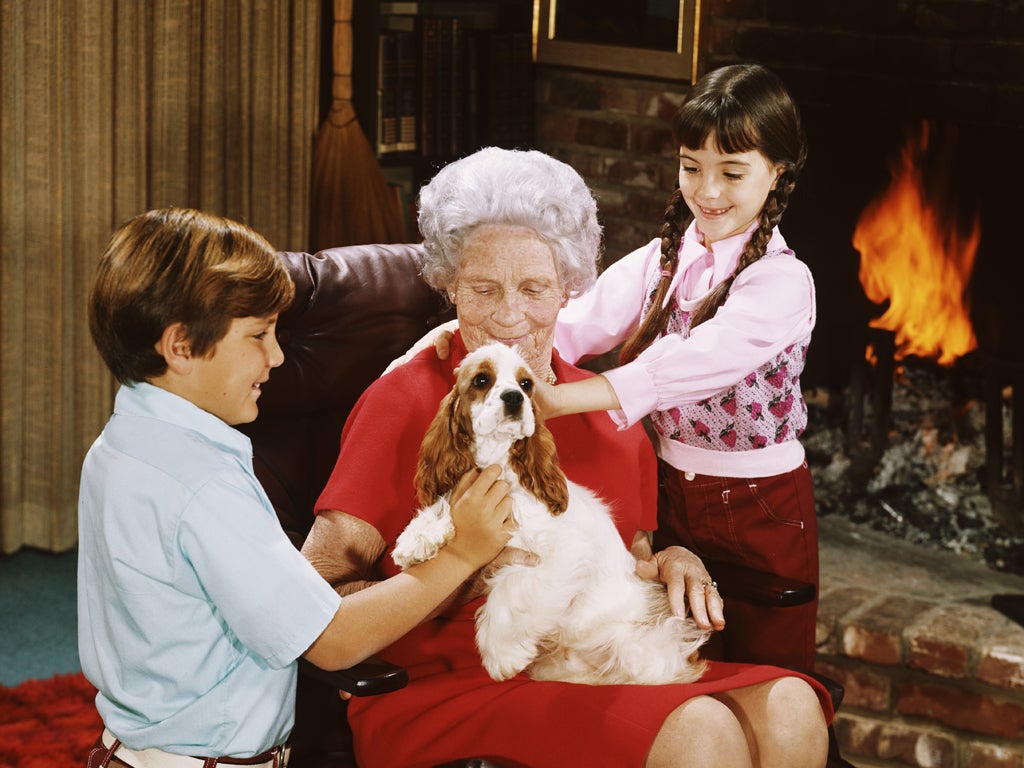The Big Questions: Is immigration a threat? Is it wrong to make children kiss their grandparents?
This week's questions are answered by warden of St Antony’s College and professor of international history Margaret MacMillan

Is Michael Gove right that our under-standing of the First World War has been hijacked by the left-wing pacifist agenda of Blackadder?
Blackadder is a comedy – a very funny one – and I can’t believe anyone would assume it is the definitive view of the war. And I do not agree that we have been led down the garden path by devious left-wingers. There is not, and never has been, a single left-wing pacifist view on war.
Where I agree with Michael Gove is that we tend today to accept uncritically the view that the First World War was utterly futile. Each power felt that it was promoting its national interests, and public support was high. We may not agree, but the British and troops from all over the empire thought they were fighting for something important, whether it was king and country, hearth and home, or against Prussian militarism. Equally, in France and Russia, people thought they were fighting for something important. So, too, did the peoples of the Central Powers, whether it was Germans who, as they saw it, had to hold off the Slavs or the Ottomans to maintain their empire.
I keep hoping that we can accept that it is all right to disagree, and that there is not and never will be one definitive view of the war and what it meant.
How do you think Britain should be marking this year’s centenary of the start of the First World War?
I like what I have seen of plans to encourage community participation and to work with the schools to make children aware of a war which must seem very far away to them.
I am also encouraged by the international co‑operation, such as joint commemorations of the Christmas truce of 1914 planned between Britain and Germany. A century on must surely be the time to see these catastrophic events from a transnational perspective. And, of course, we should remember that the war was far more than a European one. So I would like to see a linking up of European commemorations with those in the rest of the world.
Is Britain threatened by a flood of immigrants?
No, and I am bewildered by the hysteria in some circles. The immigrants who are likely to come will be young, skilled and ambitious and will make a significant contribution to the economy. They will also do some of the jobs which are currently difficult to fill, just as earlier immigrants have done.
Will they somehow threaten the British way of life? I come from a country, Canada, which has always received large numbers of immigrants and has managed successfully to absorb them, so I am not particularly sympathetic to such worries.
The “lawful killing” verdict on the police shooting of Mark Duggan has sparked outrage among some. Should we worry that society is fragmenting?
I am not sure that this incident says much about the fragmentation of society, but rather about the difficult relations between the police and a particular community. If we want to concern ourselves about society, we need to pay more attention to the ways in which people are dividing themselves up geographically so that they have fewer opportunities to meet those who aren’t like themselves, whether in socio-economic terms or in values and attitudes.
I continue to be surprised and dismayed by the way successive British governments are allowing the publicly funded school system to divide itself up on religious grounds. Surely we should want to encourage pupils of different faiths to mix with each other.
A play based on Hilary Mantel’s Wolf Hall is taking theatre-goers in Stratford by storm. Why do the Tudors strike such a chord in 21st century Britain?
It beats me. Perhaps because the age is seen as a golden one, when Britain was on the way to becoming a world power. Perhaps because we have an insatiable appetite for costume drama. And the Tudors do provide wonderful stories.
Finally, the combination of Mantel and Stratford is almost bound to be a success; together they could take a government White Paper and make it irresistible theatre.
Is the Prime Minister right to keep protecting pensioners’ benefits when there are ever more cuts to the welfare budget to come?
It makes sense in terms of votes because pensioners are well organised and more likely to turn up to vote. And we should remember that state pensions make all the difference for those who have no other income. A lot of us, though, do not need pensions and do not need other benefits such as free bus passes. I would happily give those up if I could be sure that the funds would go back into the welfare budget.
Is it wrong to force children to give their grandparents a kiss, as some sex education campaigners suggested this week?
Oh, for heaven’s sake. If they see something sinister in it, I suggest they try not to see every gesture of affection in sexualised terms. If the argument is that children shouldn’t be forced to kiss wrinkled old faces, then all I can say is that I have never noticed that my great-nephews and nieces mind kissing me. Our world would be poorer if we can no longer exchange affectionate greetings, whether those are high fives or kisses.
Margaret MacMillan is warden of St Antony’s College and professor of international history at the University of Oxford. Her new book ‘The War that Ended Peace: How Europe Abandoned Peace for the First World War’ (Profile) is out now
Join our commenting forum
Join thought-provoking conversations, follow other Independent readers and see their replies
Comments
Bookmark popover
Removed from bookmarks